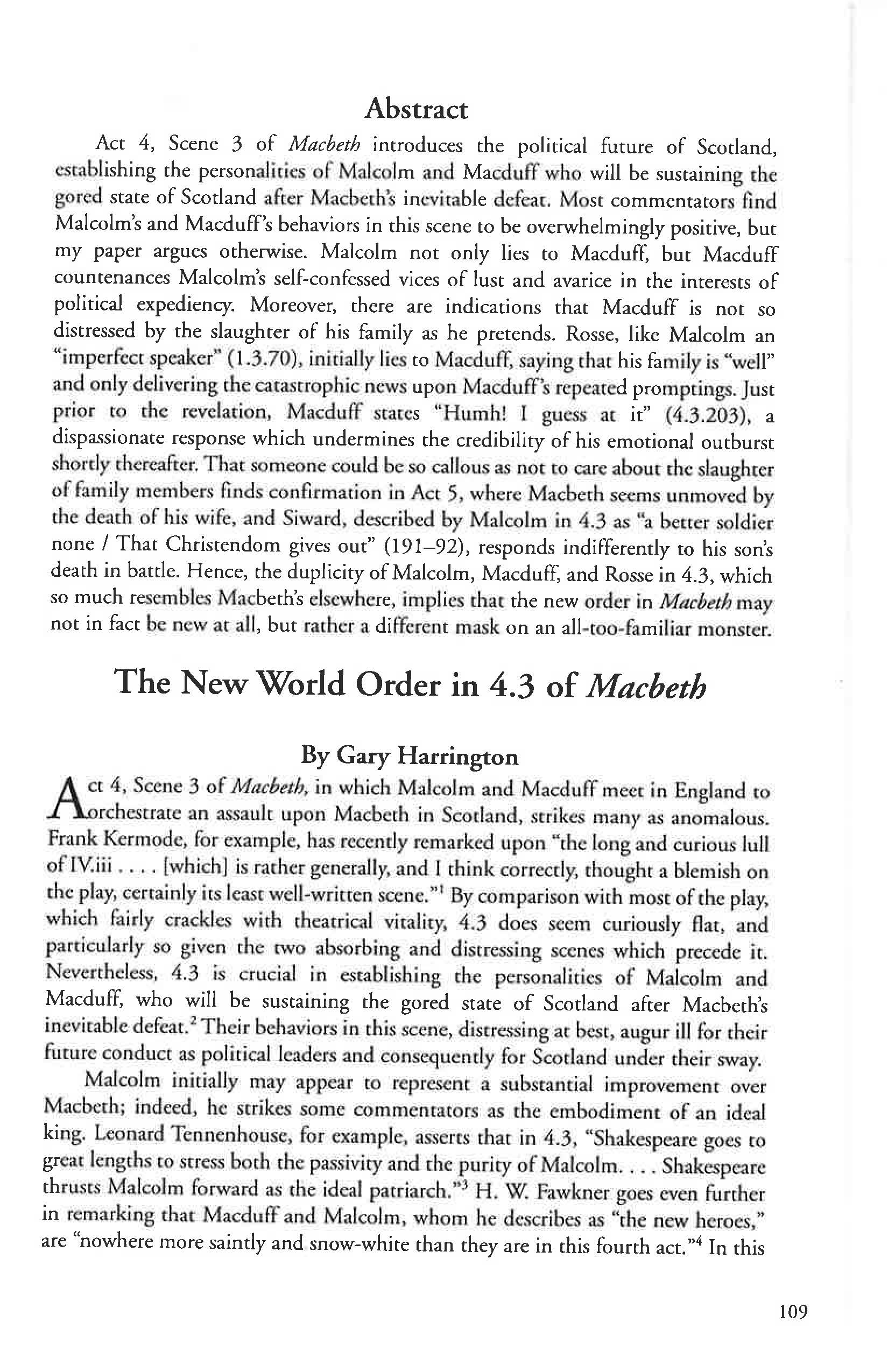The New World Order in 4.3 of Macbeth
Main Article Content
Abstract
Act 4, Scene 3 of Macbeth introduces the political future of Scotland, establishing the personalities of Malcolm and Macduff who will be sustaining the gored state of Scotland after Macbeth's inevitable defeat. Most commentators find Malcolm's and Macduff's behaviors in this scene to be overwhelmingly positive, but my paper argues otherwise. Malcolm not only lies to Macduff, but Macduff countenances Malcolm's self-confessed vices of lust and avarice in the interests of political expediency. Moreover, there are indications that Macduff is not so distressed by the slaughter of his family as he pretends. Rosse, like Malcolm an "imperfect speaker" (l.3.70), initially lies to Macduff, saying that his family is "well" and only delivering the catastrophic news upon Macduff repeated promptings. Just prior to the revelation, Macduff states "Humh! I guess at it" (4.3.203), a dispassionate response which undermines the credibility of his emotional outburst shortly thereafter. That someone could be so callous as not to care about the slaughter of family members finds confirmation in Act 5, where Macbeth seems unmoved by the death of his wife, and Siward, described by Malcolm in 4.3 as "a better soldier none/ That Christendom gives out" (191-92), responds indifferently to his son's death in battle. Hence, the duplicity of Malcolm, Macduff, and Rosse in 4.3, which so much resembles Macbeth's elsewhere, implies that the new order in Macbeth may not in fact be new at all, but rather a different mask on an all-too-familiar monster.
